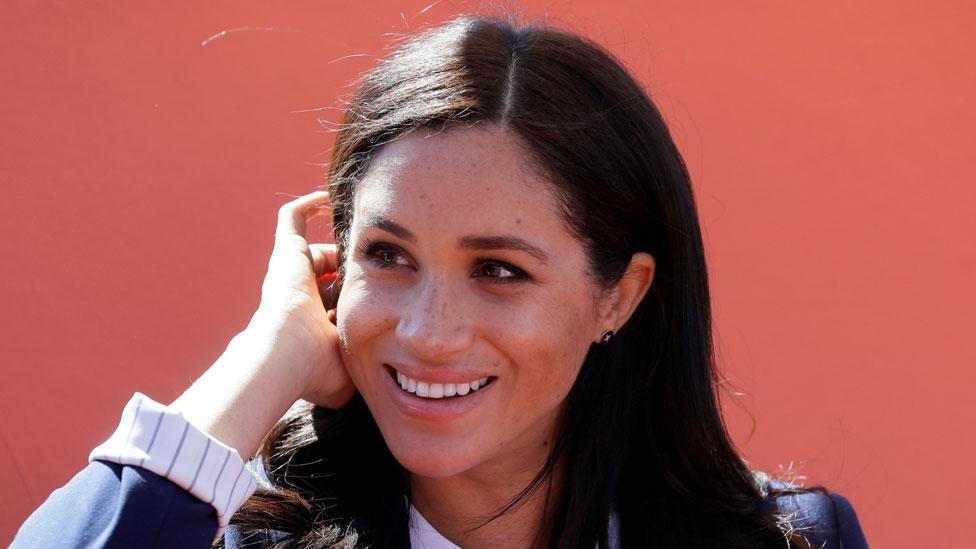Prince Harry and Meghan Markle: The royal love affair with Africa
- Published
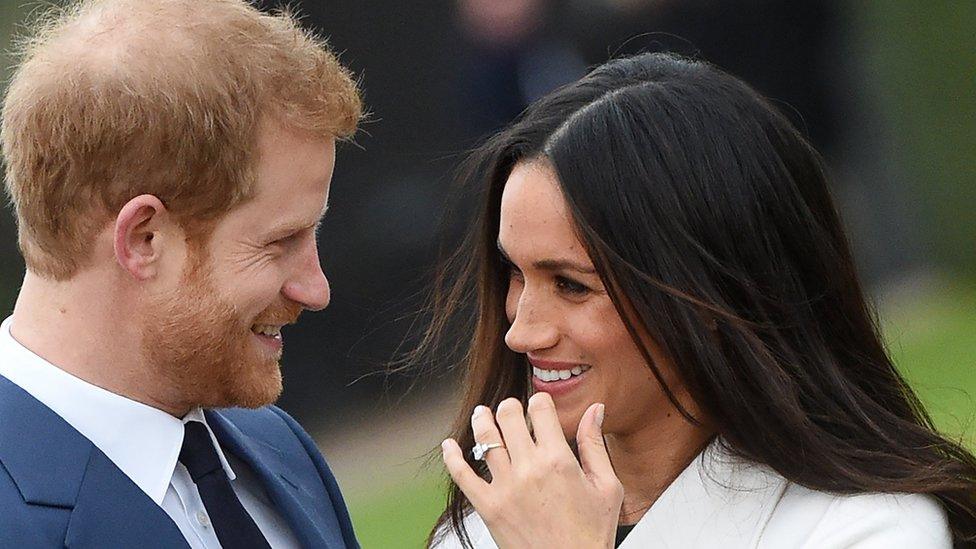
Prince Harry is set to marry Meghan Markle in May
Botswana has played a central role in Prince Harry's fairytale romance with the American actress Meghan Markle.
It was after just two dates the already-smitten royal decided to whisk his future bride off to the country to enjoy five nights camping under the African stars.
He would later tell the BBC he felt the "stars were aligned" when he met Miss Markle.
The couple returned again the next summer, and the southern African state was still very much in his mind when the prince began designing the engagement ring: at its centre is a diamond from Botswana.
But then it should almost come as no surprise that an African country is the place where Prince Harry chose to escape to after meeting Miss Markle.
He has previously admitted the continent is the place "where I feel more like myself than anywhere else in the world".
And he is not the only member of the British Royal Family for whom it has played a pivotal role.
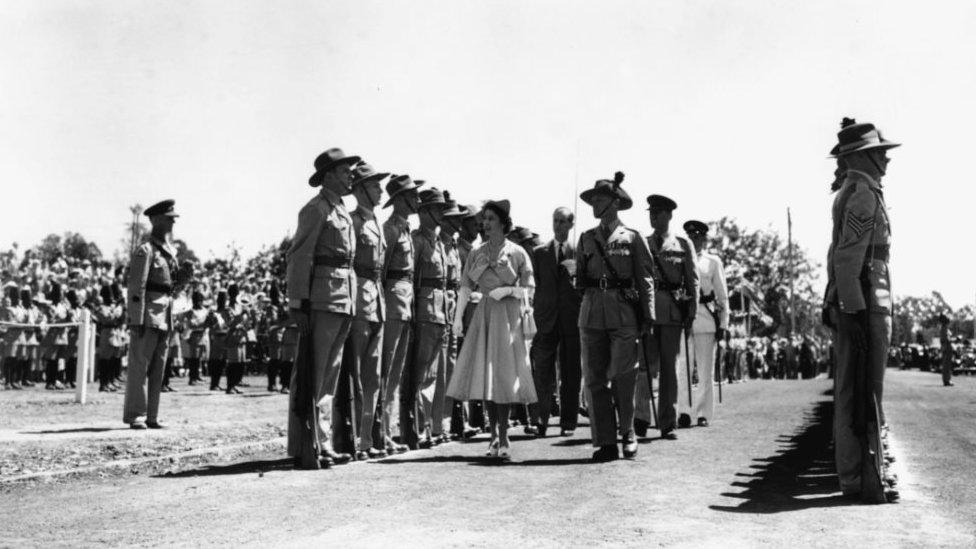
Elizabeth Windsor arrived in Kenya a princess and left a queen in 1952
Prince Harry talks about Meghan Markle's ring
It begins with personal tragedy: Africa would be the place where a young Princess Elizabeth - Prince Harry's grandmother - would discover she was now Queen.
She and her husband, the Duke of Edinburgh, were in Kenya on a tour of the Commonwealth when the news came through that her father, King George VI, had died in London.
They had been enjoying a few days respite, game-watching at the now famous Treetops Hotel, a little over 100 miles from the capital, Nairobi.
Kenya would hold happier memories for one of her grandsons, however.
The Duke of Cambridge proposed to the then-Kate Middleton while on holiday in the East African country - admitting later to having carried his mother's engagement ring around in a backpack for about three weeks before choosing the perfect time to pop the question.
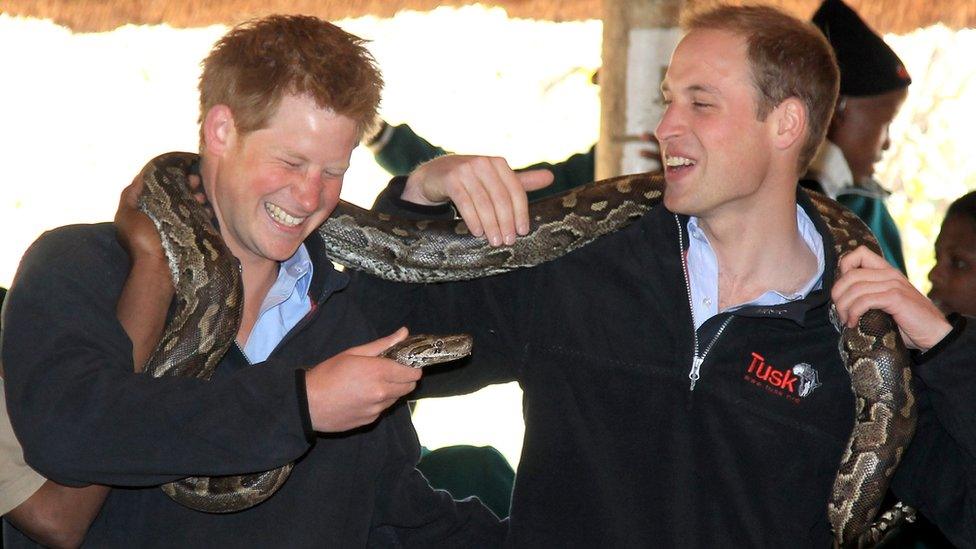
Prince Harry and Prince William (pictured in Botswana in 2010) both work with organisations in Africa
Prince William later revealed Kenya was the place where he fell in love with Africa, but it is certainly not the only country to which he feels a special connection.
"Its escaping to a kind of different world where I am just who I normally am anyway, and I can let that side, that sort of slightly immature, silly person come out a bit more than I normally do," he explained.
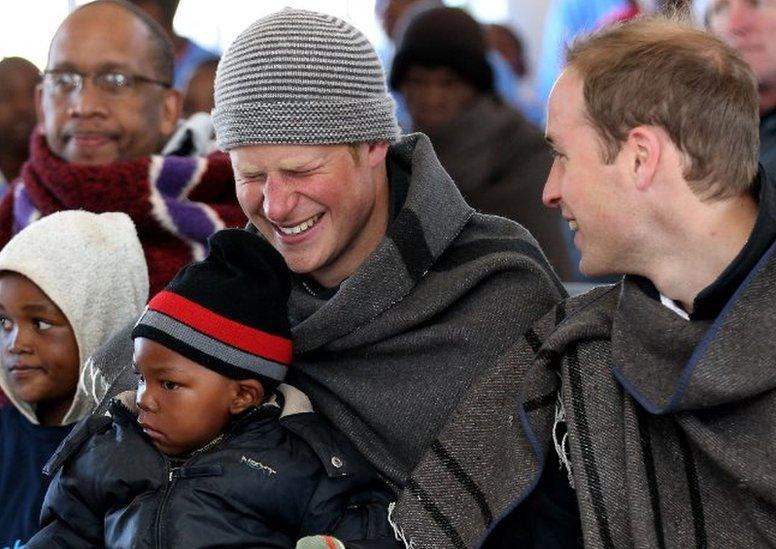
Prince Harry (with his brother in Lesotho in 2010) established his own charity in 2006
Both Prince William and Prince Harry have thrown themselves into charitable projects in Africa.
Animal conservation is an issue they are both passionate about. The Duke is a patron of the elephant charity Tusk, while Prince Harry is a patron of Rhino Conservation Botswana.
Prince Harry also spent three weeks in Malawi during summer 2016, helping move elephants more than 200 miles to Nkhotakota Wildlife Reserve where they would be safe from conflict with humans.
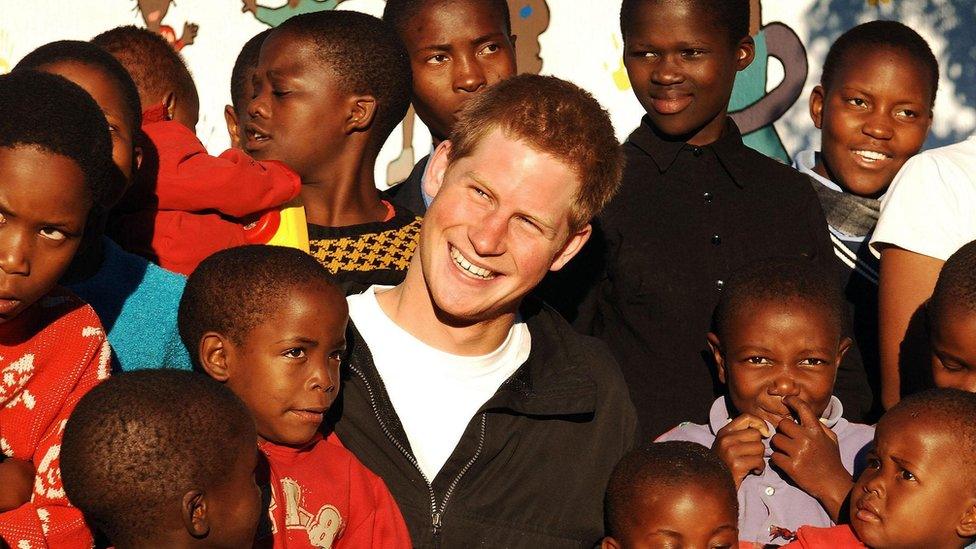
The prince works with people affected by HIV and Aids in Lesotho (pictured in 2006) and Botswana
However, the charity which seems closest to the Prince's heart is Sentebale, which is dedicated to working with young people affected by HIV/Aids.
It was set up by Prince Harry and Lesotho's Prince Seeiso in memory of their late mothers, who both died when they were young, and who both worked with those affected by the virus, in 2006.
Since then, he has made numerous trips to check on the work it is doing, as well as arranging fundraising events back at home.
The prince's love for the charity is clearly returned by the charity itself, which shared its own congratulatory messages as soon as news of his engagement broke.
Allow X content?
This article contains content provided by X. We ask for your permission before anything is loaded, as they may be using cookies and other technologies. You may want to read X’s cookie policy, external and privacy policy, external before accepting. To view this content choose ‘accept and continue’.
However, it seems likely it will be a few months before he makes it back to visit them, with a wedding to plan for May.
But Miss Markle's shared passion for humanitarian causes - she travelled to Rwanda with World Vision Canada in 2016 to see a clean water project - would suggest they won't be away for long.
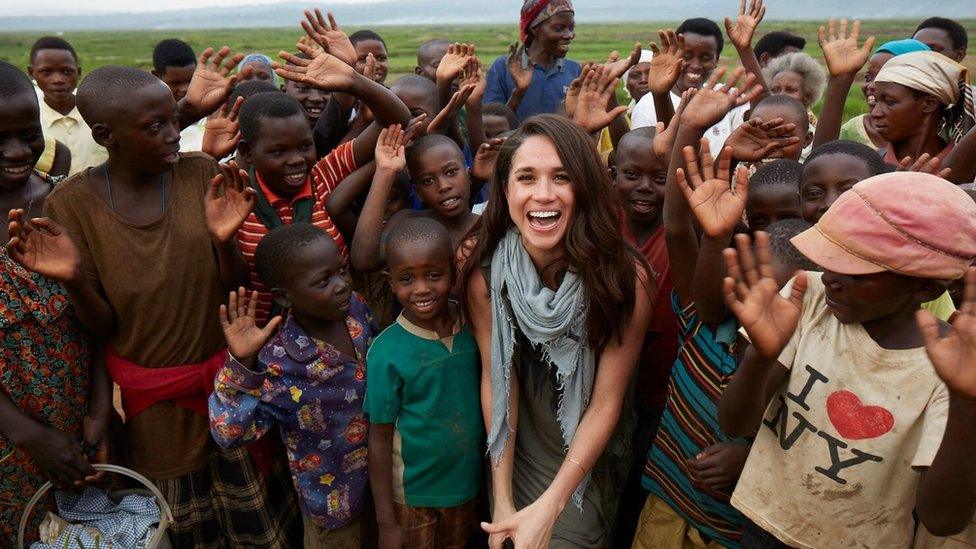
Miss Markle is already a keen supporter of charities, and went to see World Vision's work in Rwanda in 2016
And as for the future, Prince Harry has already hinted at his hopes during an interview about his work with Sentebale on ITV last year.
"I have this love of Africa that will never disappear - and I hope it carries on with my children as well."
- Published27 November 2017
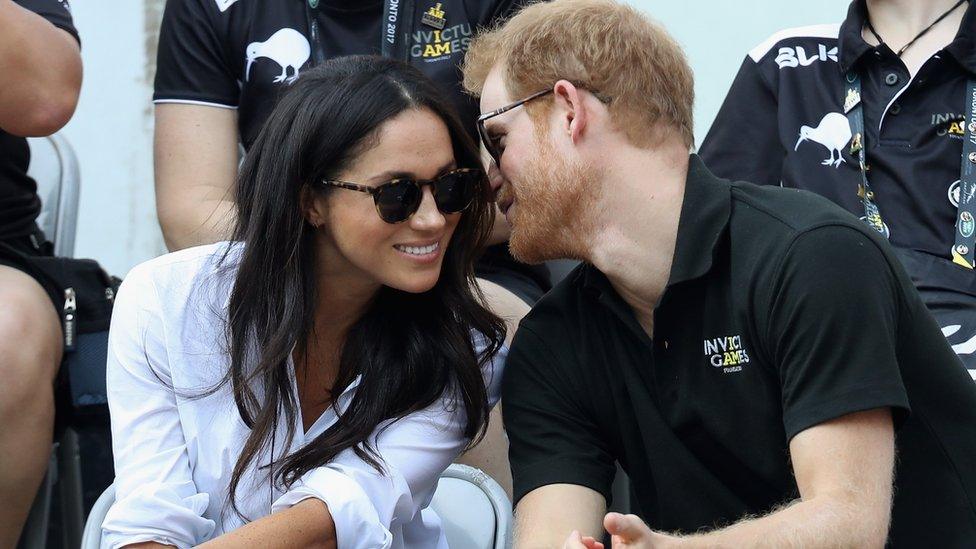
- Published18 May 2018
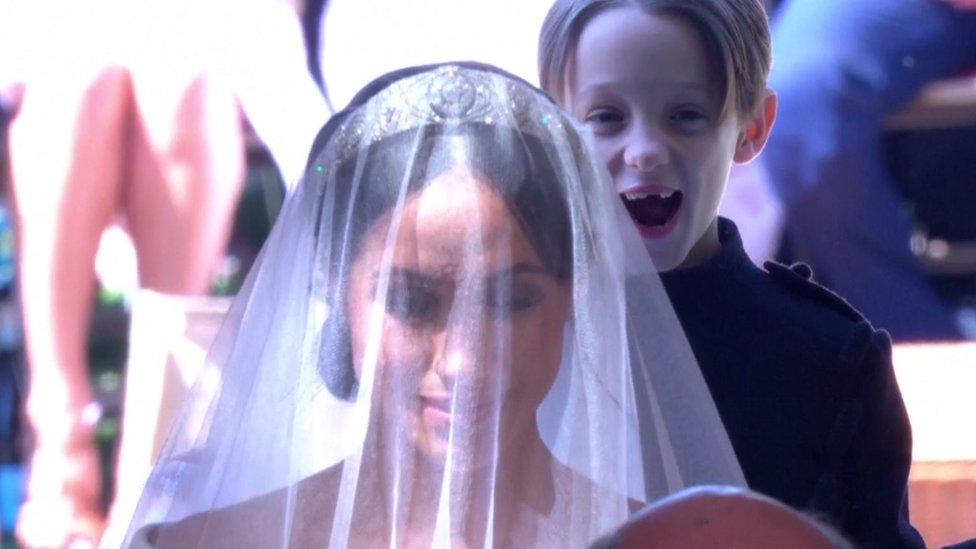
- Published8 November 2016
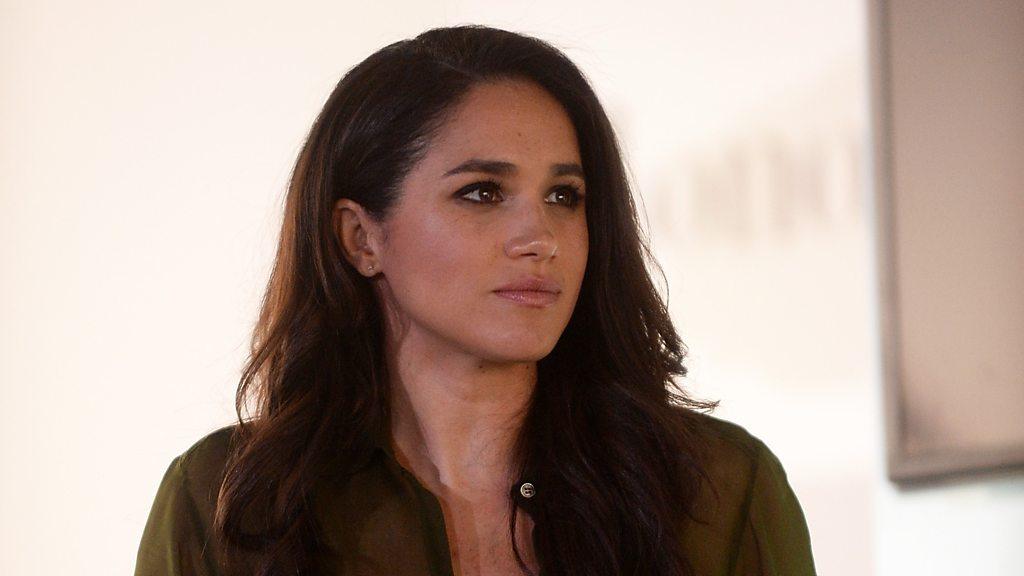
- Published27 September 2017
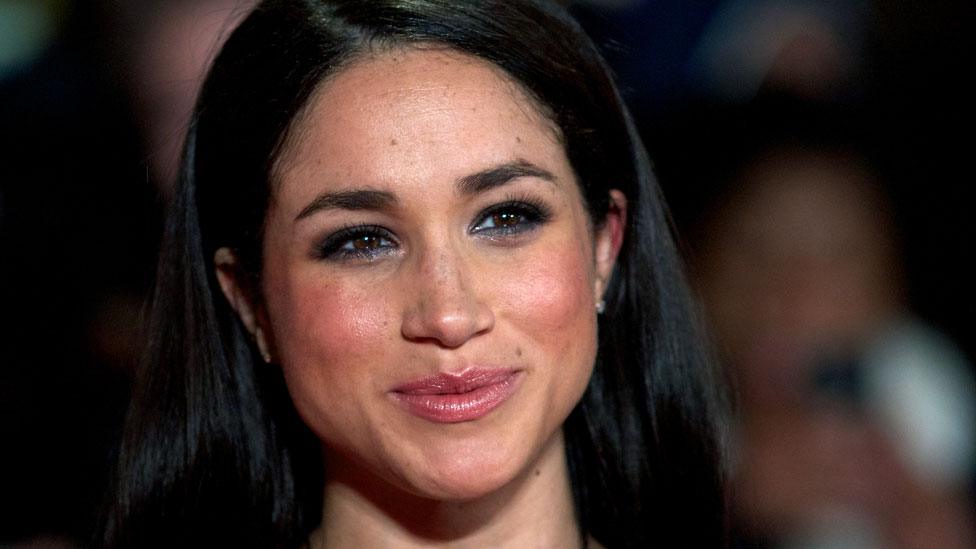
- Published4 March 2021
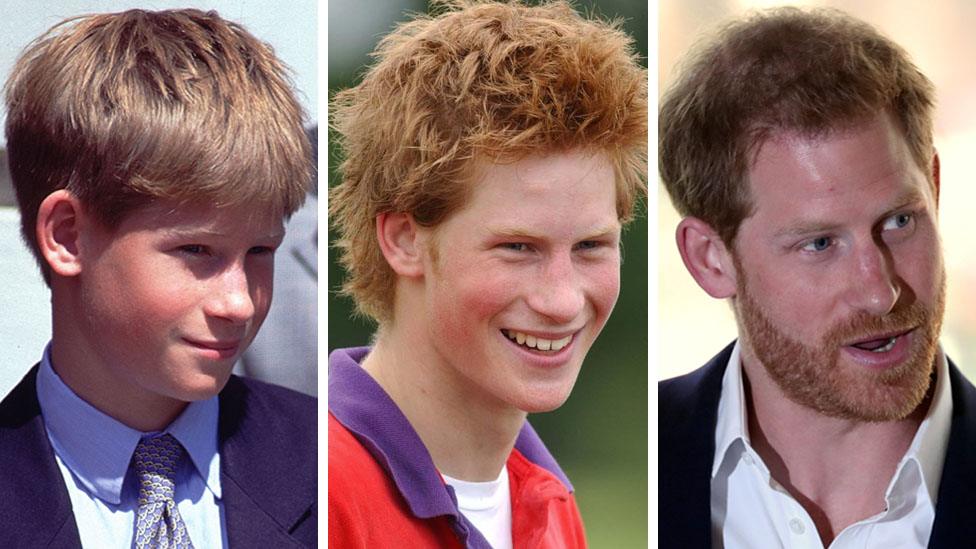
- Published6 June 2021
